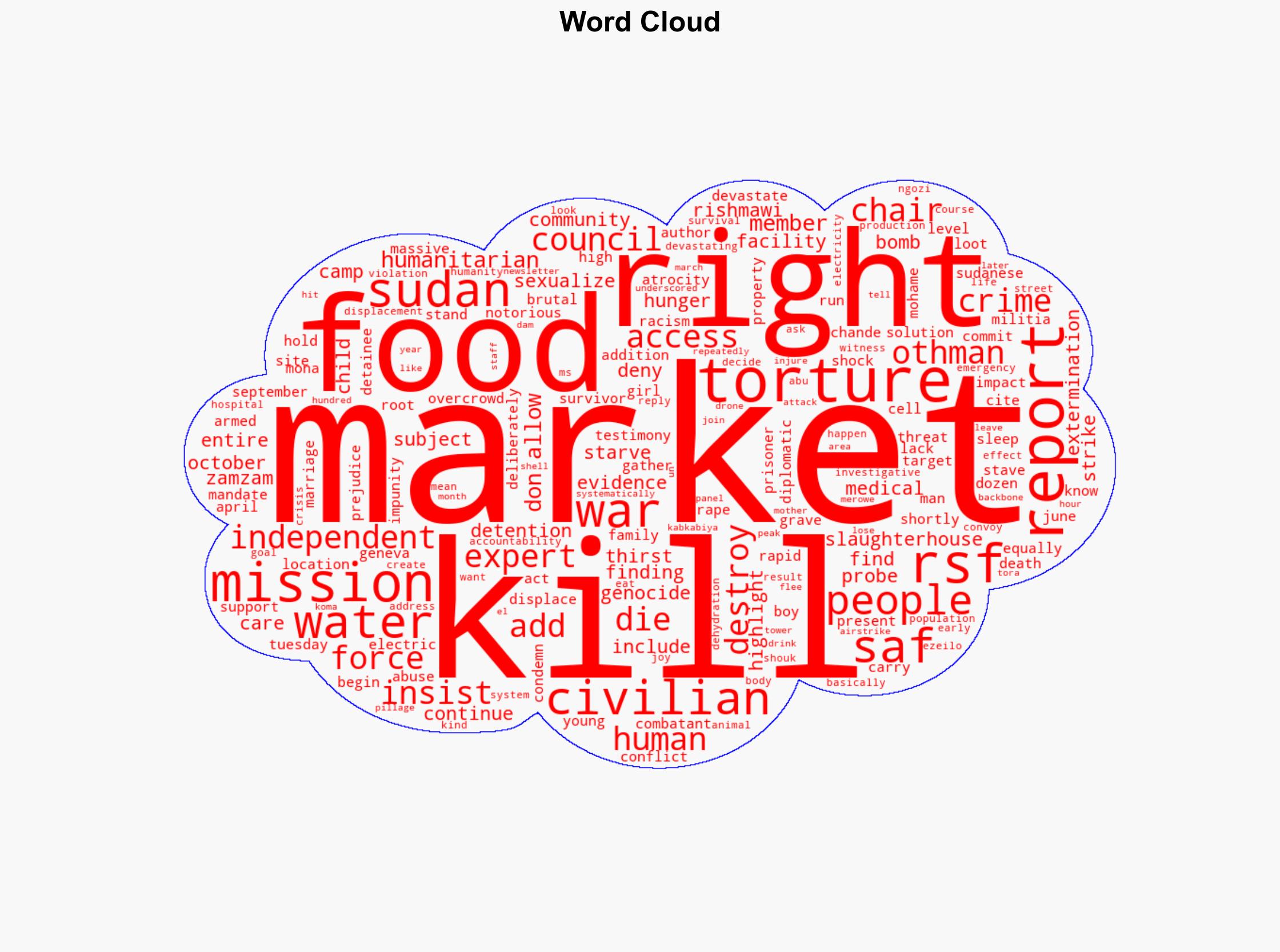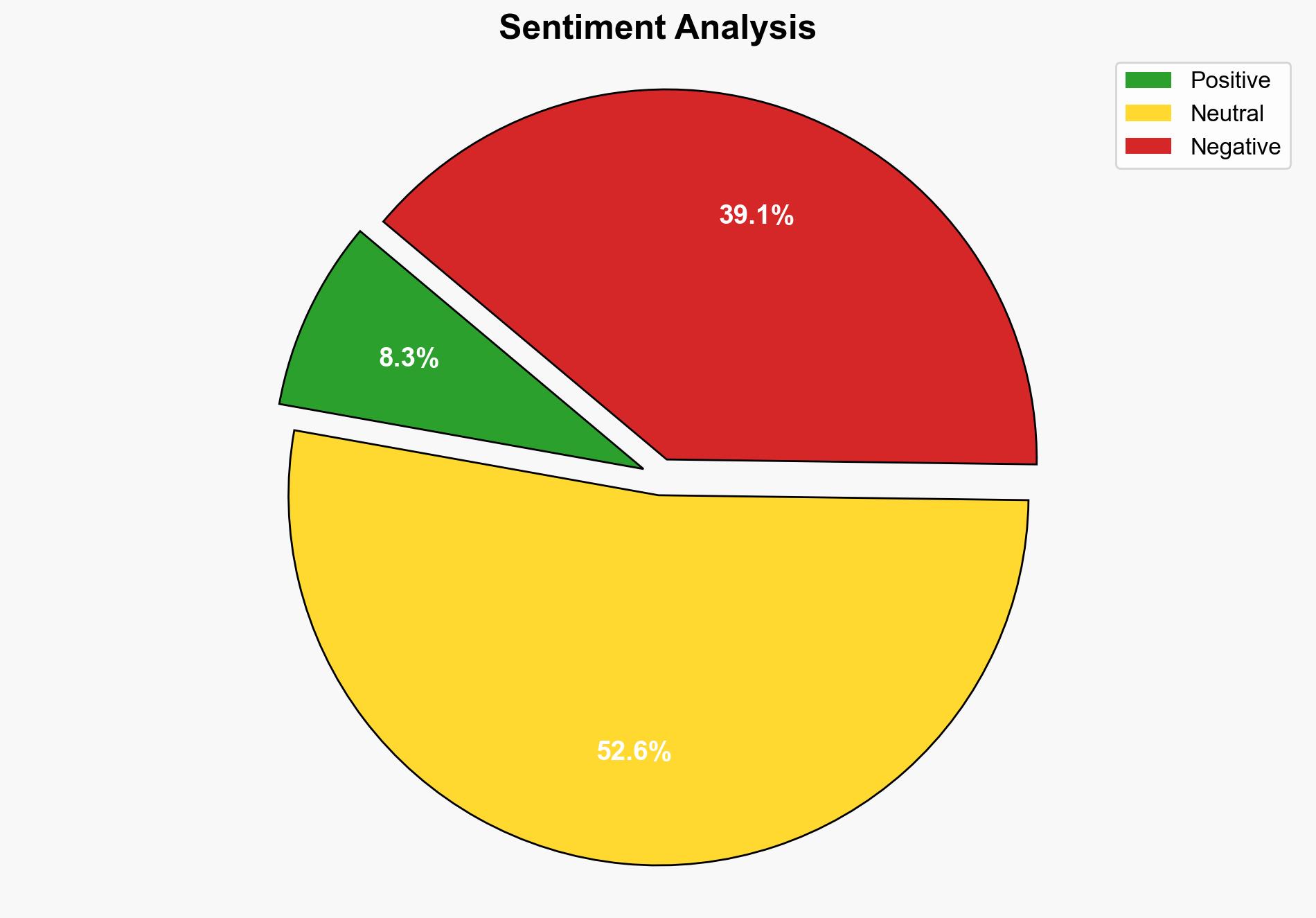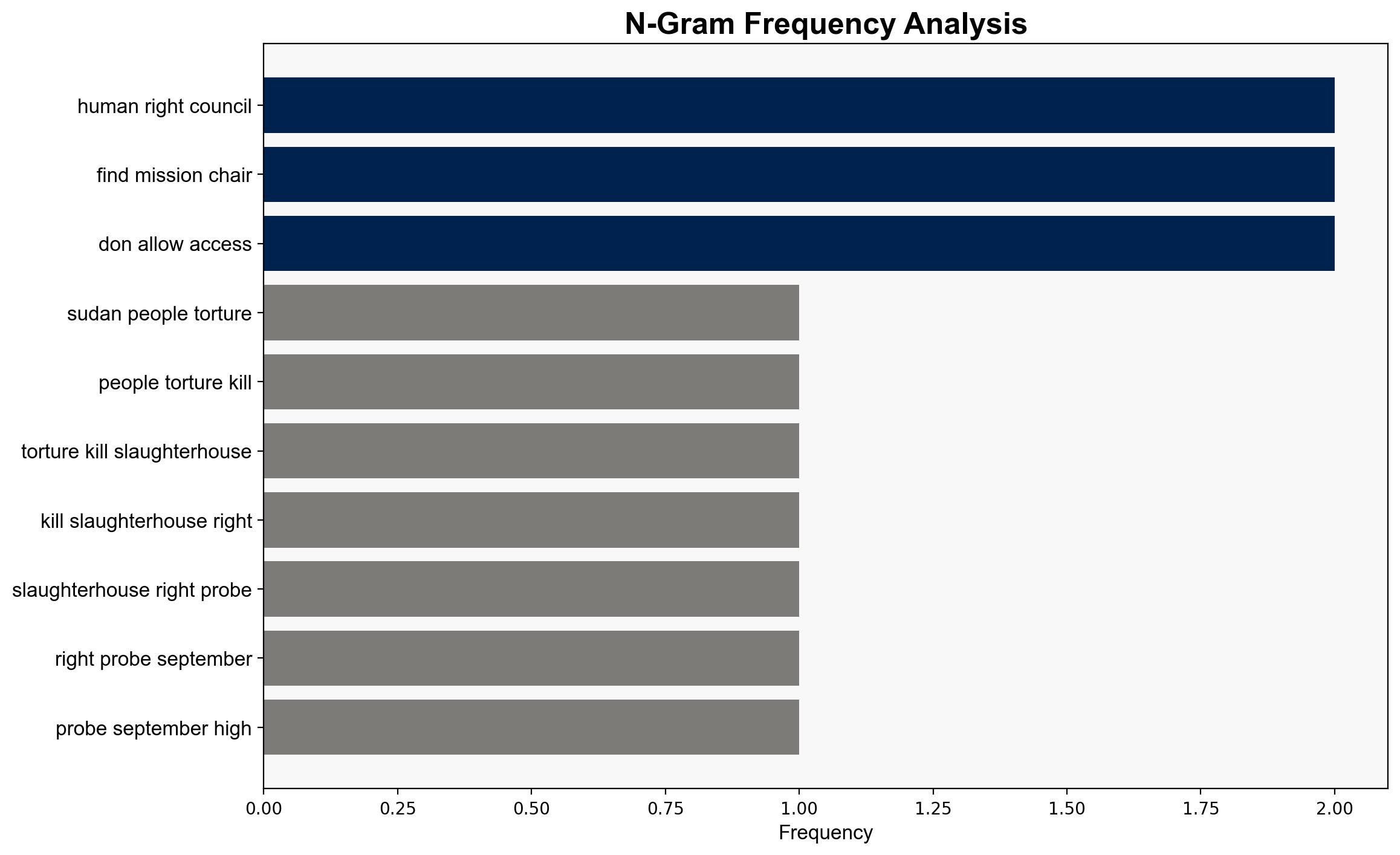Sudan’s people tortured and killed in ‘slaughterhouses’ rights probe says – Globalsecurity.org
Published on: 2025-09-10
Intelligence Report: Sudan’s people tortured and killed in ‘slaughterhouses’ rights probe says – Globalsecurity.org
1. BLUF (Bottom Line Up Front)
The most supported hypothesis is that both the Sudanese Armed Forces (SAF) and the Rapid Support Forces (RSF) are systematically committing atrocities against civilians as part of a broader strategy to destabilize and control regions in Sudan. This assessment is made with a moderate confidence level due to the corroborated testimonies and documented patterns of behavior. Recommended action includes international diplomatic pressure and targeted sanctions to deter further human rights violations.
2. Competing Hypotheses
1. **Hypothesis A**: The SAF and RSF are deliberately targeting civilians to exert control and suppress opposition, using tactics that amount to crimes against humanity.
2. **Hypothesis B**: The reported atrocities are exaggerated or misattributed, possibly as part of a disinformation campaign by opposing factions or external actors to delegitimize the current Sudanese government and its military forces.
3. Key Assumptions and Red Flags
– **Assumptions for Hypothesis A**: The testimonies and evidence presented are accurate and representative of the broader situation. The SAF and RSF have both the capability and intent to carry out such systematic atrocities.
– **Assumptions for Hypothesis B**: There is a coordinated effort to misrepresent the actions of the SAF and RSF, possibly involving falsified evidence or biased reporting.
– **Red Flags**: Lack of independent verification of some claims, potential bias in sources, and the possibility of manipulated narratives by interested parties.
4. Implications and Strategic Risks
The continuation of atrocities could lead to further destabilization of Sudan, potentially spilling over into neighboring regions, exacerbating humanitarian crises, and increasing refugee flows. There is also a risk of international intervention, which could escalate tensions. Economically, prolonged conflict may disrupt regional trade routes and access to resources.
5. Recommendations and Outlook
- Engage with international bodies to apply diplomatic pressure on Sudan to allow independent investigations.
- Implement targeted sanctions against key individuals and entities within the SAF and RSF to deter further violations.
- Scenario Projections:
- Best Case: Successful diplomatic intervention leads to a ceasefire and humanitarian access.
- Worst Case: Escalation into a broader regional conflict with increased civilian casualties.
- Most Likely: Continued low-intensity conflict with intermittent international attention and sporadic humanitarian relief.
6. Key Individuals and Entities
– Mohamed Chande Othman: Chair of the mission investigating human rights violations in Sudan.
– Mona Rishmawi: Author of the report highlighting the humanitarian impact of the conflict.
– SAF and RSF: Primary military entities involved in the conflict.
7. Thematic Tags
national security threats, human rights violations, regional conflict, humanitarian crisis




